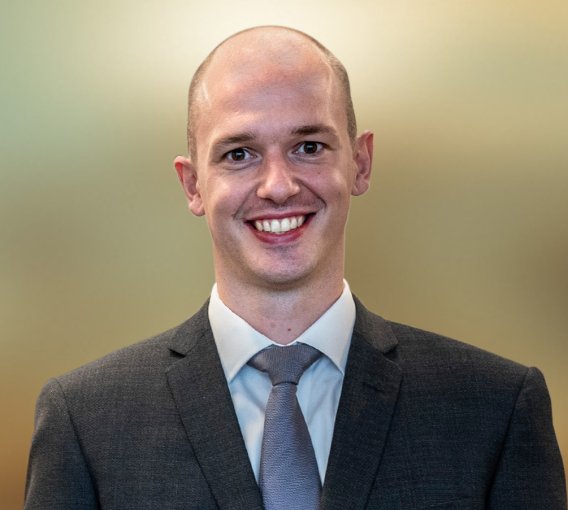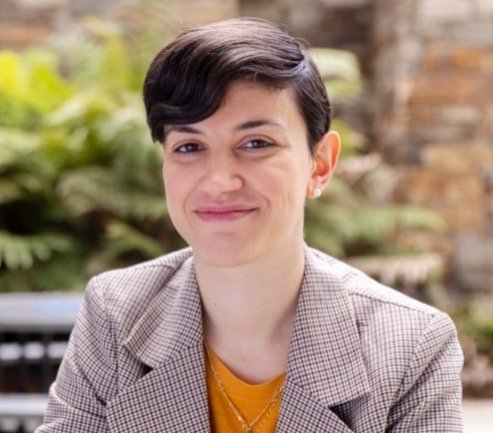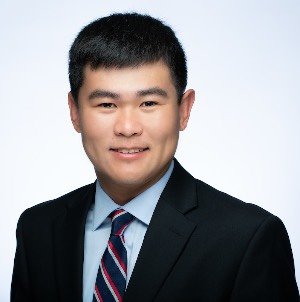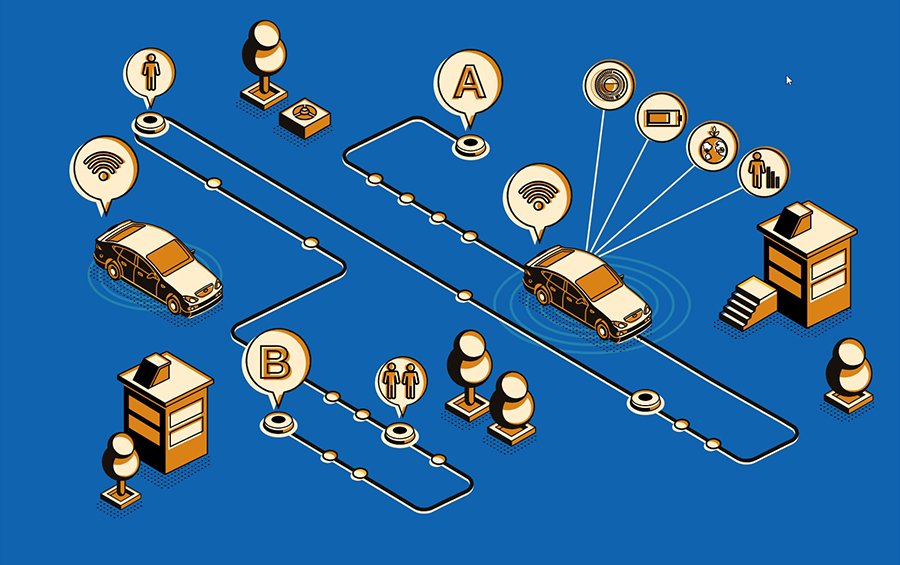Autonomous, Connected, and Electrified Mobility Systems: Toward Human-Centered Paradigms
Fifth Workshop on Autonomous, Connected, and Electrified Mobility Systems: Toward Human-Centered Paradigms held in conjunction with the IEEE Intelligent Transportation Systems Conference, Bilbao, Spain
September 24, 2023
Public debate about the future of mobility and transportation is increasingly informed by predictions about the impact of Automation, Connectivity, and Electrification (ACE), yet many other opportunities remain to design mobility systems that serve users and provide safe and efficient mobility. As potentially disruptive technologies are approaching market-readiness and are beginning to be deployed, there are still several socio-technical challenges to be addressed, which may require different narratives and paradigms from the status quo. Many of those require a transdisciplinary view on ITS, for instance,
How can we design human-centered and sustainable mobility systems that integrate ACE technologies?
How should we adapt our infrastructure to adequately accommodate future autonomous, connected and electrified mobility systems, whilst leveraging existing transportation modes?
What are the socio-technical challenges we are facing and how can our community contribute to address them?
How can we ensure that such technologies benefit all members of society, improving equity and fairness rather than undermining them?
How can we ensure that such technologies are leveraged to help meet sustainability goals?
Are we asking the right questions and studying the right problems, or reverse-engineering belief-driven solutions?
From a technical perspective, this workshop will discuss socio-technical and control problems from the individual user-level up to the transportation-system-level, focusing on the interaction between different modes of transportation, and how they can be integrated to develop safe and efficient intelligent transportation systems. Overall, the goal of the workshop is to provide researchers with an overview of current and future mobility challenges to be addressed by our community, and, at the same time, exchange results, ideas and visions on how our community can contribute to sustainable and human-centered mobility systems and, ultimately, our society.
Workshop Moderators
- Mauro Salazar (m.r.u.salazar@tue.nl), Assistant Professor, Control Systems Technology, TU Eindhoven, The Netherlands
- Raphael Stern (rstern@umn.edu), Assistant Professor, Department of Civil, Environmental, and Geo- Engineering, University of Minnesota, United States
Workshop Speakers

- René Spaan (Rene.Spaan@helmond.nl), Project Leader Smart Mobility, Municipality of Helmond, The Netherlands
Title: Helmond's Exciting Journey as a CCAM City
Abstract: The presentation dives into Helmond's exciting journey as a Connected, Cooperative and Automated Mobility (CCAM) City, with a spotlight on C-ITS. We’ll exchange on some innovative projects, like building a bicycle highway that connects Helmond and Eindhoven, experimenting with autonomous shuttles in our industrial park, and implementing smart traffic lights. These initiatives are all about making city life better – think safer roads, easier access, and improve livability.
We also dive into our "living lab" approach. We're all about teamwork, sharing knowledge, and collaborating with different players, both local and international. with the Automotive Campus Helmond serving as a physical hub for innovative smart mobility initiatives.
Bio: René Spaan moved into the EU Smart Mobility Project Leader position at the City of Helmond in April 2021 after spending the previous 4+ years successfully at the Economic Department of the Dutch Embassy located in Mexico City. He experienced first-hand what kind of impact mobility has on mega-cities like Mexico City. Born and raised in Helmond, René Spaan will share several insights on the City of Helmond as a CCAM City.

- Maria Laura Delle Monache (mldellemonache@berkeley.edu), Department of Civil and Environmental Engineering, UC Berkeley, United States
Title: Control Strategies for Mixed Autonomy Traffic Systems: theory, simulations, and field experiments
Abstract: The recent and rapid emergence of disruptive technologies is dramatically changing how traffic is monitored and managed in our cities. They will contribute to generate new knowledge and capabilities to design and implement innovative transport policies. In this talk, we will show how we can exploit new technologies to improve traffic management. We will focus on control strategies for traffic systems with the aid of small fleets of connected and automated vehicles immersed in human driven traffic flow. We will prove analytically and numerically how the proposed control theory can improve traffic performance and finally, we will present the MegaVanderTest, a test involving 103 connected and automated vehicles (CAVs). The MegaVanderTest is to our knowledge the field test which achieved the largest concentration of CAVs collaboratively controlling traffic on a single stretch of freeway.
Bio: Maria Laura Delle Monache is an assistant professor in the Department of Civil and Environmental Engineering at the University of California, Berkeley. Prior to joining the faculty at UC Berkeley, she was a research scientist at Inria in Grenoble, France (2016-2021) and a Postdoctoral fellow at Rutgers University - Camden in USA (2014-2016). She received the Ph.D. degree in applied mathematics from the University of Nice-Sophia Antipolis, France in 2014. She is a member of the IEEE CSS Technical Committee on smart cities and of the Standing Committee on Traffic Flow Theory and Characteristics of the Transportation Research Board (NASEM). Dr. Delle Monache’s research lies at the intersection of transportation engineering, mathematics, and control theory.

- Frauke Behrendt (f.behrendt@tue.nl), Industrial Engineering and Innovation Science, TU Eindhoven, Netherlands
Title: Mobility Data Justice and Micromobility: New Perspectives on Automated, Connected and Electrified Mobility Systems
Abstract: This talk challenges the car-centric nature of many ACE debates and takes a social justice perspective to understand how (in)equalities play out with regards to emerging automated, connected and electrified mobility systems. The ‘Mobility Data Justice’ (MDJ) approach highlights (1) distributive justice in terms of access, accumulation and distribution of/to mobility and data (2) procedural justice in terms of who is included in the taking of decisions and the design of mobility and data infrastructures, and (3) epistemic justice in terms of what counts as ‘mobility, ‘data’ and knowledge – all with a global and intersectional perspective. This MDJ perspective is utilized to identify mobilities that are rarely discussed as ACE, while representing rapid change towards connected and electrified mobility systems, such as the bourgeoning app-based moto-taxies in many African countries, or the 1 million+ electric Rickshaws in Bangladesh. These case studies will show that, globally, many of the key ACE developments are happening in the area of micromobilities. In combining a micromobility with a social justice perspective, this talk provides fresh thinking for people involved with designing, implementing, visioning and researching ACE mobility systems.
Bio: Dr Frauke Behrendt is Associate Professor in Transitions to Sustainable Mobility at the Eindhoven University of Technology, with the Technology, Innovation and Society Group (TIS) and the Eindhoven Artificial Intelligence Systems Institute (EAISI). Her expertise is on smart, active and sustainable mobility as well as on digital culture. Her current research focusses on micromobility, social justice, as well as the relationship between AI and sustainability. She let several funded projects and interdisciplinary research teams. Previously, she worked at the Universities of Brighton and Sussex (UK) and the Rhode Island School of Design (US).

- Philip Brown (philip.brown@uccs.edu), Department of Computer Science, Colorado State University, United States
Title: Can Simple Behavior Models Optimize Complex Connected Vehicles?
Abstract: Emerging vehicle connectivity technologies are intended to improve road safety through distributed information sharing; however, this type of system faces a design challenge: it is difficult to predict and optimize how human agents will respond to this information. Game theoretic techniques have emerged as a popular way to model these interactions. However, these game models almost universally require drivers to be both perfectly rational and capable of performing sophisticated computation on-the-fly. In addition, most of these game models treat important aspects of the traffic environment as fixed and independent of driver behavior. For example, it is commonly assumed that the probability of a traffic accident is independent of driver behavior. Essentially, the state-of-the-art assumes that unrealistically complex drivers are inhabiting an unrealistically simple environment. In this talk, I discuss our recent work to improve modeling in both of these dimensions. First, I introduce our novel approach to modeling complex behavior/environment feedback effects, and I show that this more-realistic approach to modeling traffic environments leads to significantly different optimization approaches than the state-of-the-art. Second, I show a novel approach to modeling driver decisions which does not require a complex cognition model, but nonetheless leads to the same predictions of behavior as the traditional Bayesian game frameworks. Taken together, our new modeling framework allows simple drivers to inhabit a complex environment, paving the way for significant improvements in optimization techniques.
Bio: Philip N. Brown is Assistant Professor in the Department of Computer Science at the University of Colorado Colorado Springs. Philip received the Bachelor of Science in Electrical Engineering in 2007 from Georgia Tech, after which he spent several years designing control systems and process technology for the biodiesel industry. He received the Master of Science in Electrical Engineering in 2015 from the University of Colorado at Boulder under the supervision of Jason R. Marden, where he was a recipient of the University of Colorado Chancellor’s Fellowship. He received the PhD in Electrical and Computer Engineering from the University of California, Santa Barbara under the supervision of Jason R. Marden. He was finalist for the Best Student Paper Award at the 2016 and 2017 IEEE Conferences on Decision and Control, received the 2018 CCDC Best PhD Thesis Award from UCSB, the 2021 GameNets Best Paper Award, and the AFOSR Young Investigator Award in 2023. Philip is interested in the interactions between engineered and social systems.

- David Kan (kanx@fau.edu), Department of Civil, Environmental and Geomatics Engineering, Florida Atlantic University, United States
Title: The Electric Vehicles (EVs) Discussion Beyond Affordability and Charging Infrastructure: What EV means for Traffic Flow and Operations
Abstract: Electric vehicles (EVs) have gained significant popularity in the past few years and numerous policies and incentives have been implemented to accelerate EV adoption. While most discussions have focused on EV purchasing incentives and charging infrastructure, EV’s unique powertrain characteristics such as instantaneous peak torque and regenerative braking have been overlooked. In fact, EV’s powertrain advantage could allow for shorter average headways and swift acceleration to maintain shorter headways during queue discharge, therefore improving capacity and reducing traffic congestion. Earlier field experiments of EVs equipped with Adaptive Cruise Control (ACC) demonstrate that EVs could potentially achieve capacities as high as 2931 veh/hr/lane in steady state conditions and maintain it even in non-steady state conditions in which speeds fluctuate and queue form. Despite the promising outlook, new challenges in traffic operations and control as well as traffic safety could arise as EVs and internal combustion powered vehicles travel in a mixed traffic stream.
Bio: Dr. Kan is an assistant professor at Florida Atlantic University (FAU). Prior to joining FAU in 2019, he had been a lecturer and postdoc at UC Berkeley, where he received his PhD in transportation engineering. Dr. Kan has rich experience in empirical research related to advanced driver assistance systems (ADAS) and vehicle automation and offers a unique perspective on the potential opportunities of electric vehicles.
